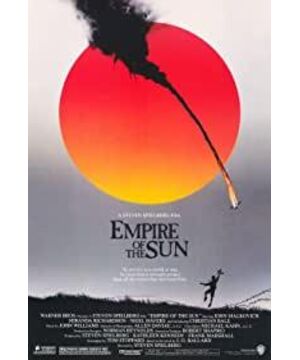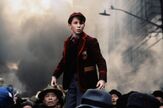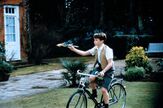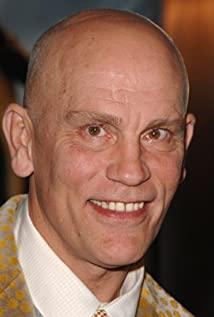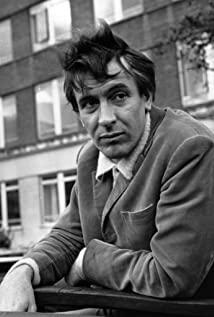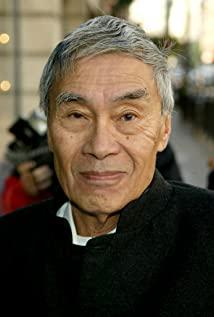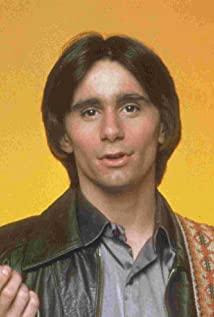... Title : Empire
Of The
Sun It has been four years. When Jim's car drove to the concession checkpoint, they were surprised to find that the checkpoint that was guarded by the Chinese and British police a few hours ago had now fallen into the hands of the Japanese. This was an ominous sign, and they decided to temporarily move to a hotel. The sky was about to dawn, and the Japanese warships on the Huangpu River flickered brightly and dimly. The plane roared past, the explosions blared, and the Jims woke up from their slumber and fled the hotel with the terrified crowd. At this time, the streets and alleys were crowded with fleeing citizens. Jim was crushed to the ground in the crowd and was separated from his parents. Jim wandered aimlessly down the street. Two young Americans named Bessie and Frank send homeless Jim to the auction market. They failed to make the deal with a Chinese businessman, so they took Jim to try their luck again. Just when they went to Jim's house, they didn't want Jim's house to be full of Japanese soldiers, and all three were arrested.
Three years later, Jim was fourteen. Three years of concentration camp life made the innocent Jim a little more mature. Jim once learned from Bessie how to break the rice cover from the hands of death row prisoners and receive an extra portion of rations that were decreasing day by day; but he also learned from Dr. Lan why he wanted to. live. It was with this belief that young Jim fought death. At every meal, Jim relished the weevil he counted from the grain of wheat, as if on a sacred mission. Once, when he ate eighty-seven weevils in one go, Mrs. Wen sat on the side with a chill and pain. Jim often sees some American Life magazines and Reader's Digest from Bessie. He likes the bold humor and bohemian character of Americans very much. One day, Jim came to Bessie's cabin, saw Bessie and Dandy looking at the compass and map, Jim knew they were discussing escape. It was here that the superior soldier Tomoda came to Bessie's hut to search, and Jim tactfully hid the compass from Tomoda's eyes, so that Bessie was spared. One day after that, in order to find out whether there were landmines near the barbed wire, Bessie lied to Jim to catch pheasants by the barbed wire, and Jim was almost discovered by the Japanese soldiers. Bessie confirmed that there were no landmines near the barbed wire, and was secretly proud.
Early one morning, several American Mustang fighter jets dropped a black cloud of bombs on the fields and airfields surrounding the camp. The Japanese anti-aircraft guns groaned feebly. On this night, under the night light, two shadows got out from under the barbed wire. The next day, Jim found out that the Japanese army was lining up to go. He immediately understood what was going on. When he wanted to tell Bessie, Frank told him with a sad face that Bessie had left. Bessie and Dandy took the compass that Jim had gotten, and fled along the path Jim had explored. Jim is so sad.
One day, a strange flame pierced the silence of dawn, and an incandescent fireball shone with a rosy halo that whitened the sky. In the firelight, Jim saw Mrs. Wen close her eyes, looking for her God in peace. Jim wakes up, why uncle sam throws a sun on nagasaki, it's because the emperor once framed god, put him in a bamboo cage, only let him eat rice and drink water, now she's free again, so the world is ruined, people into their graves. With the sound of "bang bang dang dang", the *** guerrillas opened the gate of the concentration camp. Jim reunites with his long-lost parents again. They hugged with joy and sorrow in...
Recently, I have been researching the suggestive effect of movie shots on the theme. Take this film as an example: the white chrysanthemums and the dead coffins slowly drifting from the river where the film first entered our line of sight laid the emotional foundation for the film. The camera zooms out gradually, and a military ship enters; the camera cuts, the entire screen is covered by the Japanese military flag, and slowly pulled away under the influence of the wind - the Shanghai Bund is displayed in front of the audience. It is not difficult to see that this group of shots has given the audience a strong foreshadowing. In the first two minutes of the film, it hints at the relevant plot of our movie in the form of independent pictures. Although most of the time, the audience doesn't pay much attention to the opening minute or two (because most of the time there is not much plot or dialogue in this minute or two), but add some metaphors or hints at the beginning. Shots, which make the events that happen later are less abrupt (in fact, many people don't notice this) and help the continuity of the film very well (like the background music we hear at the beginning) .
On their way to the dance, the background music drowned out the noisy voices outside the car window, and the dense breath entangled the people who were running along the road to find a way out of life. In many cases, the quiet background music replaces the original movie background sound, which will make me start to figure out the inner world of the characters. Jim looked at everything on the street with the same curious eyes as Harry had just arrived at Diagon Alley, but Harry's eyes were filled with joy, while his eyes were more of horror.
In his heart, his understanding of poverty stayed with the old man who kept knocking on the tin box at the door of his house, and he would never imagine that one day he would think that it is a happy thing to be able to beat the lunch box like that old man. an empathic effect. At about 15 minutes and 20 seconds into the film, as the plane in the child's hand slowly slipped, he found the wreckage of the Zero plane lying quietly on the lawn in his dream. He jumped like a cockpit and excitedly fiddled with the instruments on it, then raised his head... The camera switched to a model airplane flying in the air, and after a few seconds it was cut back to the child's eager eyes. While staring at the plane in the sky, he was busy with the old instruments on the corpse. Jim had hallucinations, and the audience also learned more about his desire to soar.
At around 19 minutes and 35 seconds, the Japanese soldier crawling out of the ground like a cockroach on the screen told us that the happy days were over. The director seems to be adept at using pre-dawn darkness to heighten tension, like the gloomy dark clouds and grey streets of a world war. This film is also indispensable, between 20 minutes 31 seconds and 20 minutes 59 seconds, the gloomy sky and the tension of war at any time are skillfully combined.
With timpani and cello as the background, people screaming and expressions of pain are mixed, and the Jim family is scattered by the fleeing crowd. At this time, the dense Japanese fighter planes in Jim's eyes were no longer the condor in his heart. They were like flies in the sky, swarming and overwhelming, indicating an irresistible disaster and an unimaginable plague. The picture goes back to the plane in Jim's hand, the plane he had been holding high in the panic, and fell to the ground... The plot slowly deepened, and at 27 minutes and 50 seconds, a person fell down in front of Jim, and the city shrouded in war was destroyed in 22 seconds. Time slid in and out of the picture, Jim was walking on the empty street, and the war broke out.
Favorite the quiet fear in the middle of 31 minutes, Jim found a footprint on the ground and thought it was his mother's. The camera opened to find that more than one person was dragging, fighting, and scrambled everywhere. In a hurry, he opened the window and a gust of wind blew away the fragrance powder on the ground.
In fact, there are no specific plot changes in the first hour of the film, mainly the emotional foreshadowing of the next hour and a half. I want to promote and suppress the resonance in the hearts of the audience: the perception of war, freedom, and life. I don't know if this is a feature of American films, where the British boy, after entering the camp, keeps saying that the British are boring and trying to stay with the American Bessie, even though Bessie doesn't like him that much. In fact, this seems to be a common phenomenon, and the British are becoming more and more "foreigners". In "Churchill's Hollywood Career", this phenomenon is greatly satirized. For example, Churchill has always been eager to become a good American soldier. 3 years of concentration camp life made Jim a complete "pragmatist", servile to the Japanese, making adults sad but helpless... In the two hours of the film, there is a scene of the Japanese army parting before the expedition, under the setting sun Jim sang to the Japanese army over the barbed wire, the song that was sung in the church. I didn't just know what he sang, I understood it as a kind of redemption, redemption for soldiers, redemption for war, redemption for myself... At that moment, somewhere in my heart relaxed.
The war had made him go through death, and he knew there was no point in doing CPR on a dead person. But he still knocked on their hearts again and again, not only to save them, but more to save himself, trying to save himself from fear, helplessness, and confusion.
I don't know if it is a sadness to surrender to anyone powerful? To enemies and friends alike. Maybe in the beginning I just hoped to get shelter by surrendering, but then it was a kind of servility, sad servility, servility in both of you and me
I was loved, you were loved, he was loved, he was good at defending, we conquered by plane ...
What does the Empire of the Sun mean, is it just an atomic bomb shining with the light of heaven; what kind of metaphor is an airplane, the dream of flying in a child's heart? At least one thing is clear to me. Jim's eyes recognized by his parents clearly told me that it was war!
This film is a bit long, if you have time, you can take a look behind the
scenes:
From the perspective of young people, the film reflects the human desire and pursuit of freedom in war. The film, directed by the famous director Steven Spielberg, is the first major Hollywood production to be filmed in China since 1949. The film was approved to be filmed in Shanghai for 21 days in the spring of 1987, and a total of nearly 10,000 extras were used. Chinese actor Zhai Naishe was also invited to play the role.
View more about Empire of the Sun reviews


